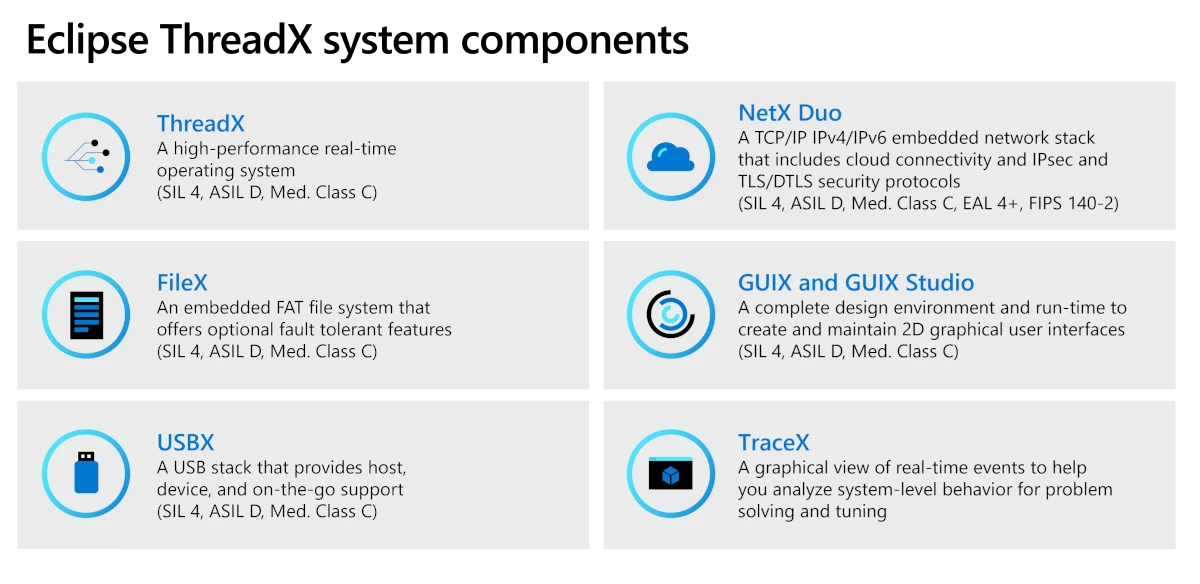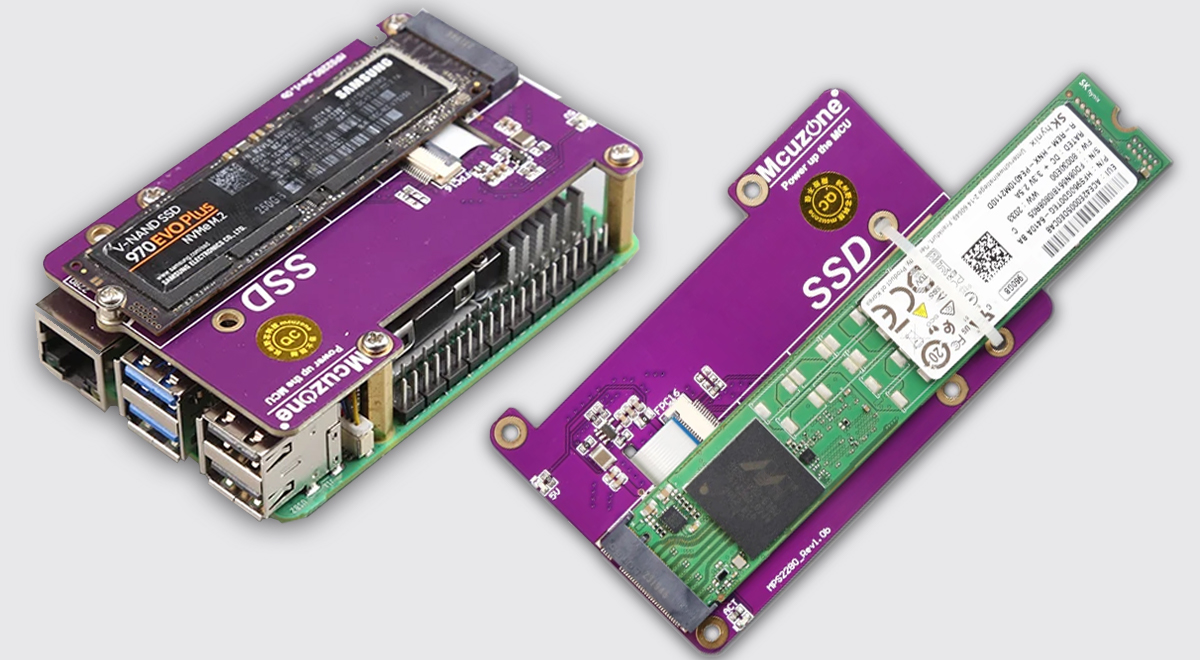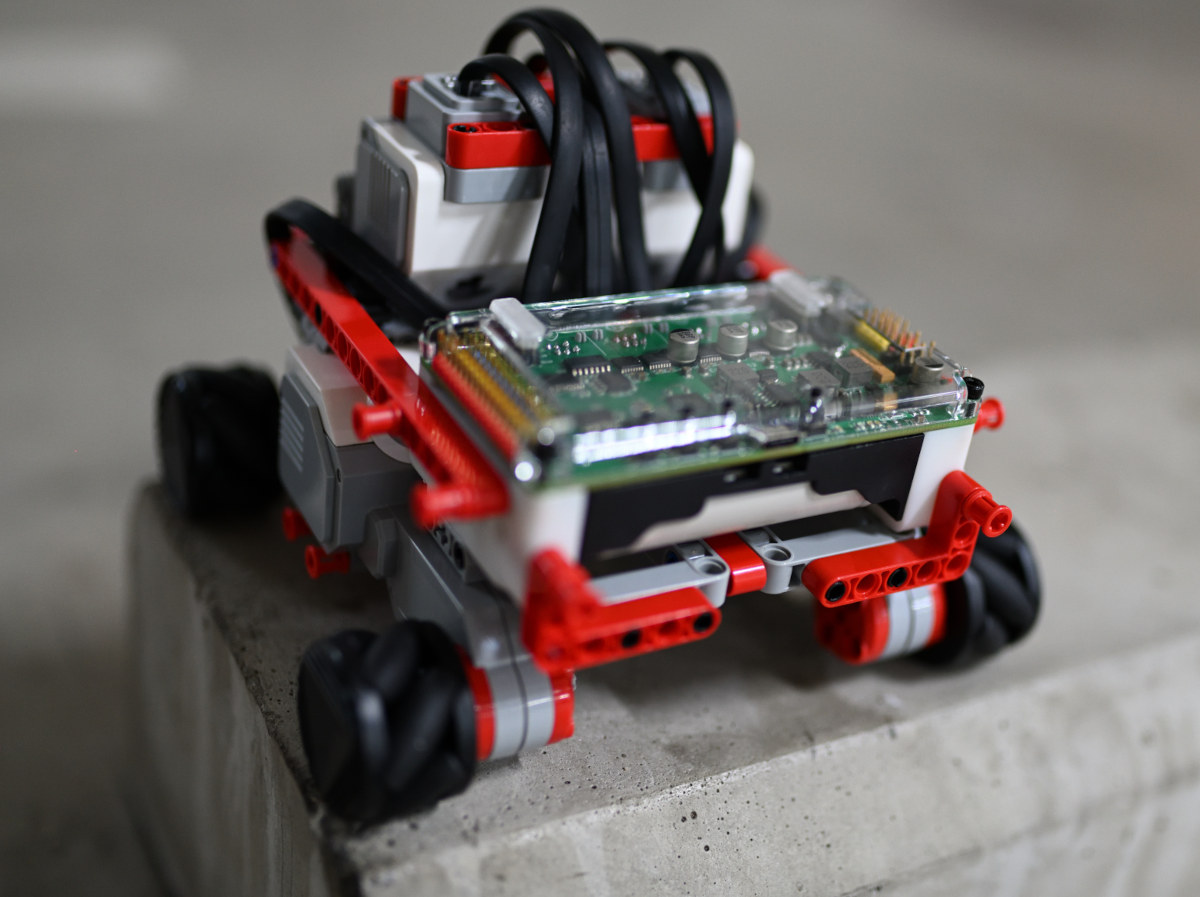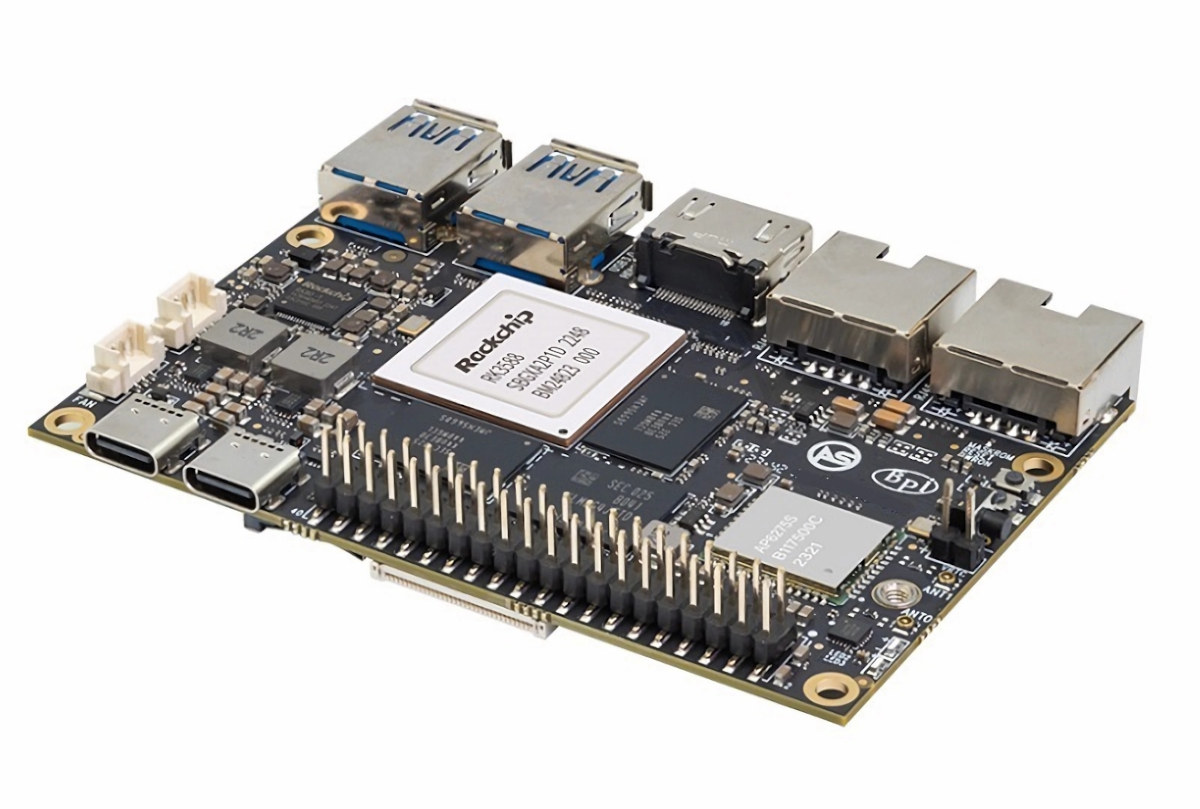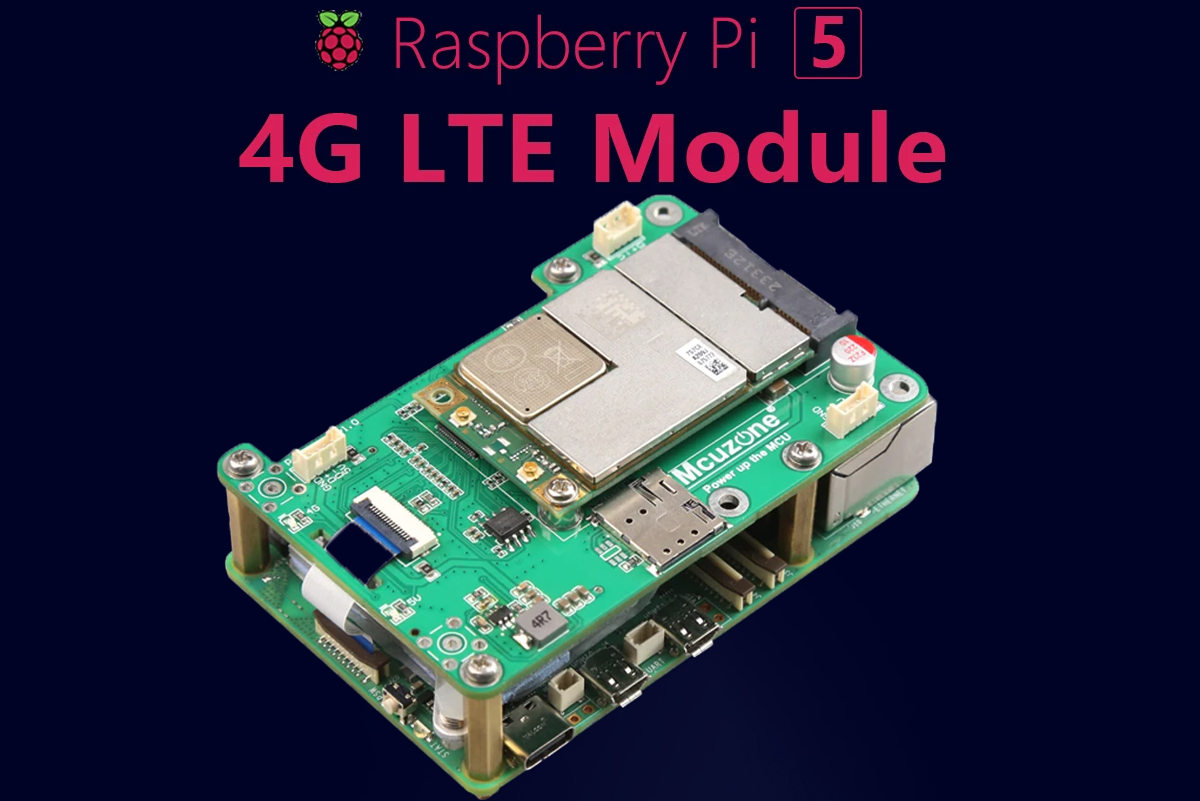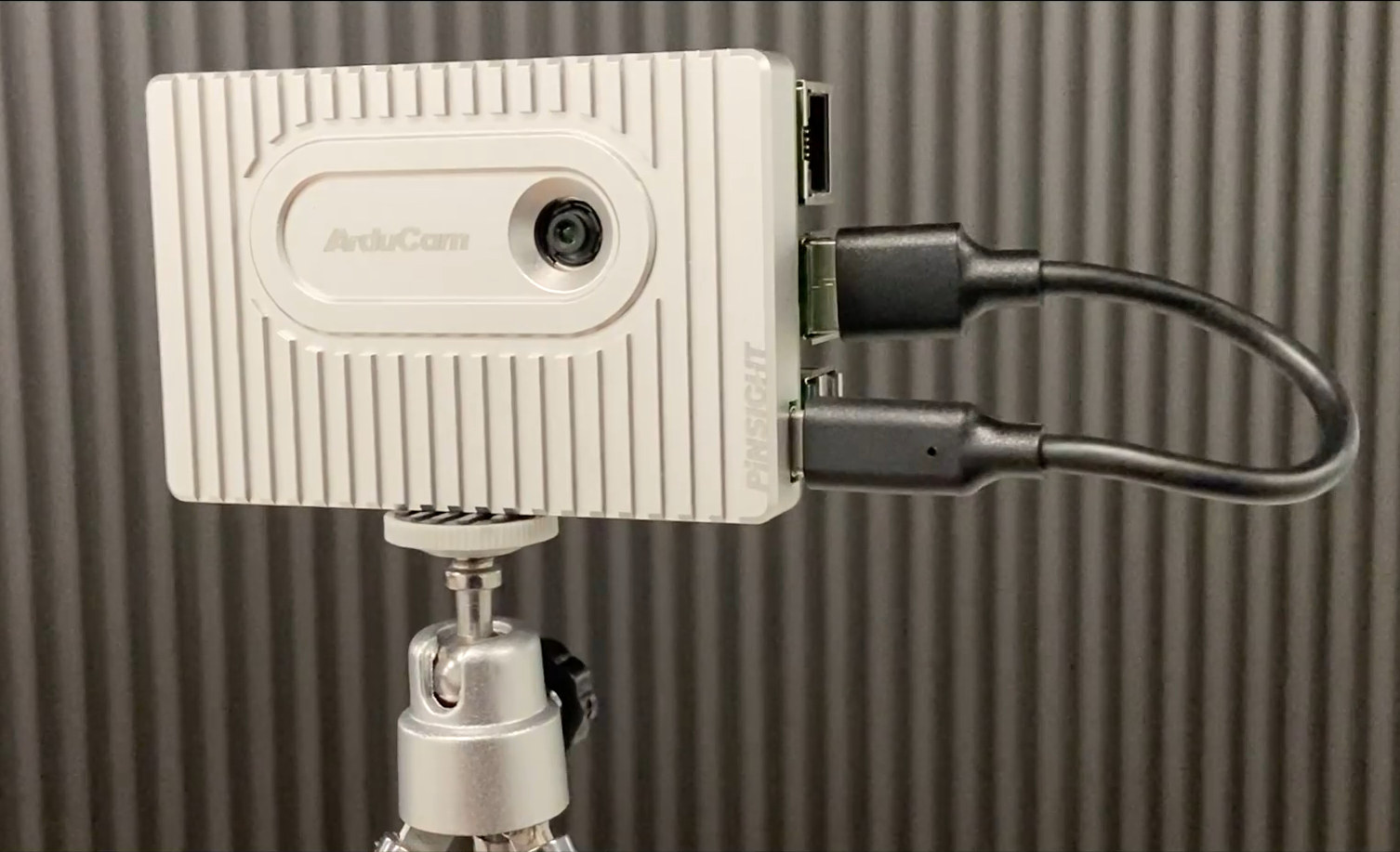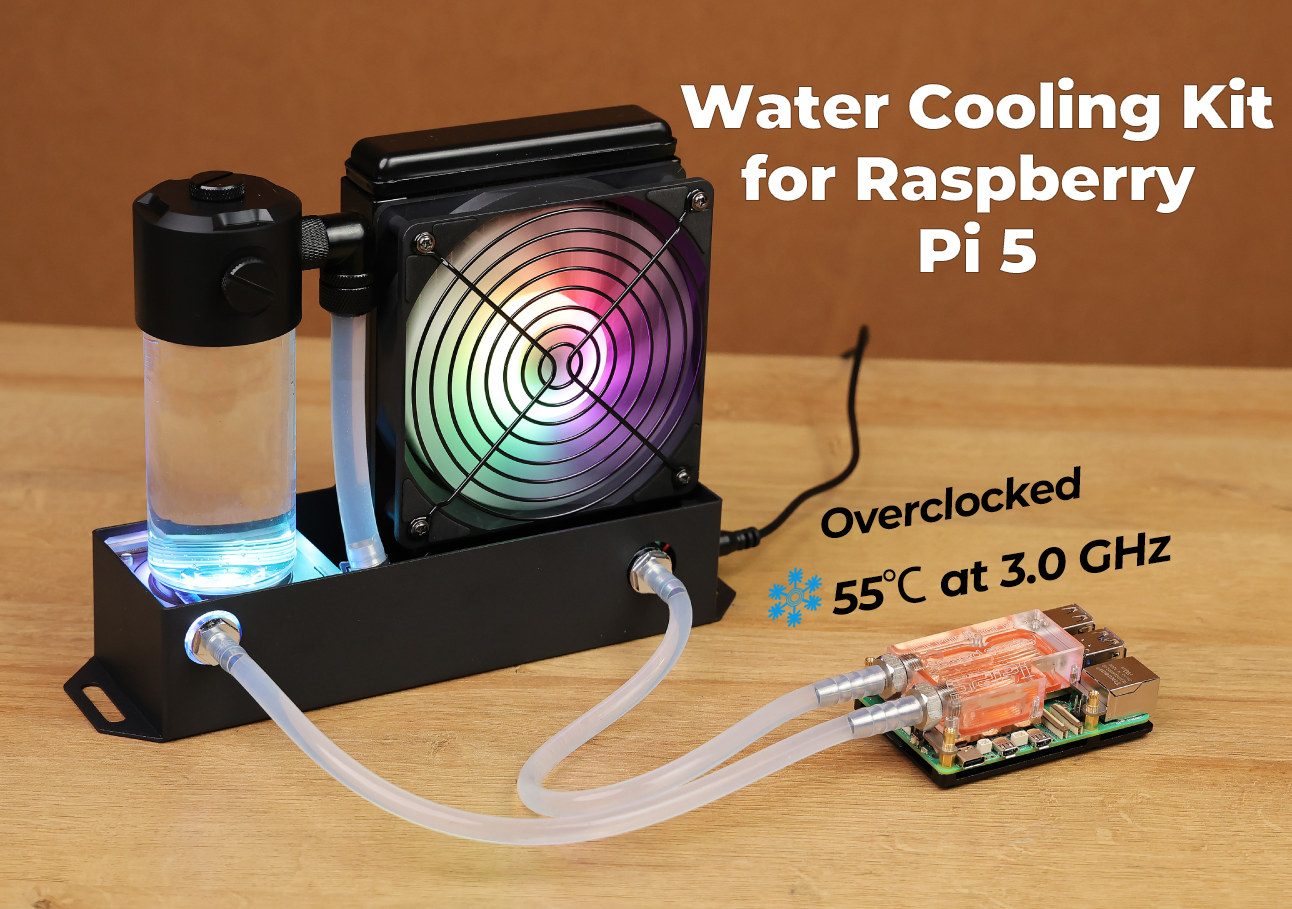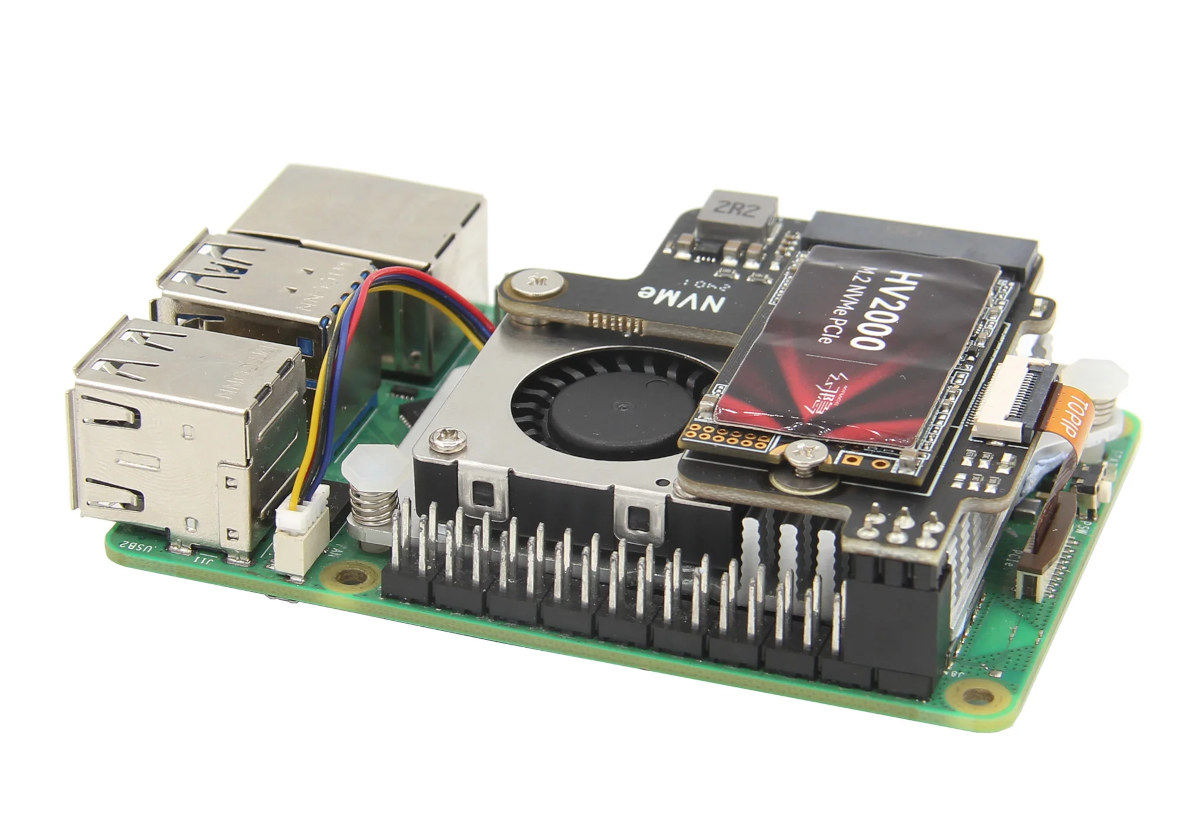Microsoft will soon open-source Eclipse ThreadX real-time operating system that has been deployed on more than 12 billion embedded devices worldwide since its first release in 1997 and, for instance, it is found in Broadcom processors powering Raspberry Pi SBCs. ThreadX was a commercial, safety-certified real-time operating system developed Express Logic which was acquired by Microsoft in 2019 and renamed to Azure RTOS. Last year, Microsoft decided to start the process to fully open-source Azure RTOS under an MIT license and managed by the Eclipse Foundation. Hence its new name: “Eclipse ThreadX“. The Eclipse ThreadX project is not simply comprised of the RTOS itself, but also includes other components: ThreadX – Real-time operating system (RTOS) designed for deeply embedded applications NetX Duo – Industrial-grade TCP/IP network stack designed for deeply embedded real-time and IoT applications FileX – FAT-compatible file system integrated with ThreadX kernel GUIX – Embedded graphical user interface […]
Mcuzone MPS2280 M.2 NVMe HAT for Raspberry Pi 5 takes an up to 22110 Gen3 SSD drive
The Mcuzone MPS2280 M.2 NVMe HAT is another PCIe to NVMe adapter board built for the Raspberry Pi 5. What sets it apart from other boards is that it supports 2280 SSDs and offers the option to Jerry-rigg a 22110 SSD with zip ties. Previously we have covered many PCIe to NVMe expansion boards such as Pimoroni NVMe Base, Geekworm X1003 PCIe to NVMe SSD adapter, and PineBerry Pi’s HatDrive, so feel free to check those out if interested. Mcuzone MPS2280 M.2 NVMe HAT specifications: PCIe Support – Compatible with PCIe x1 interface, offering Gen2 and Gen3 modes. SSD compatibility – Supports M.2 M-key interface with 2280, 2242, and 2230 size SSDs, and offers the option to Jerry-rigg a 22110 SSD with zip ties. SSD booting – Enables booting from an NVMe SSD, with options for storage expansion. Alternatively, the system can boot from TF while using the SSD for […]
EVN Alpha is a LEGO-compatible robotics controller built around Raspberry Pi RP2040 MCU (Crowdfunding)
The EVN Alpha is a robotics project from a team based in Singapore and is aimed at roboticists seeking an advanced building platform beyond what LEGO Robotics kits offer. This robotics controller can be considered a spiritual successor to the LEGO MINDSTORMS EV3 intelligent brick. It runs on the Raspberry Pi RP2040 microcontroller with two Cortex M0+ cores running at a maximum clock speed of 133 MHz and 264KB of embedded SRAM and builds upon the rich software support available for the microcontroller. It features 64 LEGO Technic-compatible holes on five sides for easy installation into your projects and has 26 ports for I2C, UART, servos, EV3, and NXT motors. It is smaller volumetrically than the LEGO bricks and can be powered from two generic 18650 Lithium-ion cells rather than a proprietary solution (unlike the LEGO SPIKE Prime). The EVN Alpha was created as a “basecamp for students looking to […]
Banana Pi BPI-M7 – A thin Rockchip RK3588 SBC with dual 2.5GbE, M.2 NVMe storage, HDMI 2.1, and more
Banana Pi BPI-M7 SBC is powered by a Rockchip RK3588 SoC and comes with a low profile design that reminds me of boards from Khadas such as the Khadas Edge2 or VIM4 SBCs but with a few extra ports thanks to the larger form factor. The Banana Pi BPI-M7 single board computer is equipped with up to 32GB RAM and 128GB eMMC flash and features an M.2 2280 socket for one NVMe SSD, three display interfaces (HDMI, USB-C, MIPI DSI), two camera connectors, dual 2.5GbE, WiFi 6 and Bluetooth 5.2, a few USB ports, and a 40-pin GPIO header for expansion. Banana Pi BPI-M7 specifications: SoC – Rockchip RK3588 octa-core processor with CPU – 4x Cortex‑A76 cores @ up to 2.4 GHz, 4x Cortex‑A55 core @ 1.8 GHz GPU – Arm Mali-G610 MP4 “Odin” GPU Video decoder – 8Kp60 H.265, VP9, AVS2, 8Kp30 H.264 AVC/MVC, 4Kp60 AV1, 1080p60 MPEG-2/-1, VC-1, […]
Mcuzone MP4GM 4G LTE PCIe Module for Raspberry Pi 5 also adds three USB 2.0 interfaces
Mcuzone recently announced the MP4GM, a new 4G LTE module for the Raspberry Pi 5 SBC. This module connects to the Raspberry Pi 5 via PCIe and includes three extra 1.25mm JST connectors for three additional USB 2.0 interfaces. This HAT is compatible with various 4G LTE mini PCIe modules from Mcuzone and Fibocom, providing flexible options for 4G connectivity. We have previously covered a 5G Modem Kit for the Raspberry Pi 5, but this is the first time we have found out about a 4G LTE kit designed for the Pi 5. We have also covered Mcuzone RK3308 SoM and the MDK3308-EK Evaluation Kit, designed for smart voice applications as well as a Raspberry Pi CM4 board with dual Ethernet capabilities all from MCUzone. So, feel free to check those out if you are interested in their products. Mcuzone MP4GM 4G LTE module specification: Model – MP4GM PCIe to […]
Arducam PiNSIGHT – A 4 TOPS AI camera board for the Raspberry Pi 5
Arducam PiNSIGHT is an AI camera board designed for the Raspberry Pi 5 equipped with a 12.3MP auto-focus module and an Intel Movidius Myriad X-powered SoM delivering up to 4 TOPS and supporting Intel OpenVINO deep learning models. The PiNSIGHT “AI Mate” is mounted underneath the Raspberry Pi 5 to which it is connected through a 15-cm USB-A to USB-C cable. The case is made of metal and acts as a heatsink, and Arducam told CNX Software it dissipates heat enough to cool down the Raspberry Pi 5, and they don’t think the active cooler is needed anymore. In other words, it also acts as a fanless enclosure albeit it’s not in contact with the CPU, so whether it’s enough probably depends on your use case… Arducam PiNSIGHT “AI Mate” specifications: AI accelerator – Luxonis OAK-SoM based on Intel Movidius Myriad X vision processing unit delivering up to 4 TOPS […]
52Pi water cooling kit keeps the Raspberry Pi 5 SBC cool at 3.0 GHz
If you like fancy, but somewhat expensive and useless things, 52Pi’s water cooling kit for Raspberry Pi 5 SBC may be right up your alley and the over-engineered cooling solution sells for $120 on Seeed Studio where we discovered the kit. We’ve already seen the active cooler and official case do a decent job at cooling the Raspberry Pi 5, but several companies have also launched fanless cases for the latest Pi single board computer. Water cooling may only make sense when attempting to overclock the Raspberry Pi 5, and 52Pi claims the Broadcom BCM2712 processor can run a 3.0 GHz at a relatively cool temperature of 55°C. 52Pi water cooling kit content: Main water cooling unit with RGB LED fan, water tank, and base Water cooling radiator (that’s the orange thing on top of the Raspberry Pi) Black heatsink 2x Silicone hoses 12V/2A power adapter (US) 4x M2.5*10 hexagonal screws […]
Geekworm X1003 PCIe to NVMe SSD adapter for Raspberry Pi 5 works with the active cooler or official case
The Geekworm X1003 is a well-designed PCIe to NVMe expansion board for the Raspberry Pi 5. It supports 2230 and 2242 SSDs with M.2 M-Key, does not interfere with the airflow when using the active cooler, and fits snugly within the official Pi 5 ABS case although you need to take out the fan layer from the top of the case. We previously wrote about the low-cost Waveshare PCIe to M.2 adapter, but user Rex Tang highlighted a design flaw with its 2230 screw mount affecting 2242 SSDs that have chips on both sides of the module. Then, user PANiCnz recommended the X1003 with a compact design that doesn’t have the same issue. We also covered other PCIe to NVMe expansion boards such as Pimoroni NVMe Base and PineBerry Pi’s HatDrive, so feel free to check those out if interested. Geekworm X1003 PCIe to NVMe adapter specifications: Compatible with Raspberry […]


